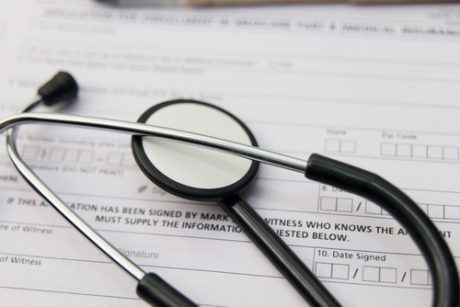Expert witnesses are essential when a civil claim involves matters outside the expertise of the parties, their legal teams and the judge. Expert witnesses often provide the critical evidence that helps the court make a ruling. If you are considering expert witness work, this article should assist in setting out the basics of who can be an expert, what is required of an expert and the limitations imposed on them.
For many senior clinicians and practitioners, working as an expert in civil claims can be rewarding and intellectually challenging, but the process can seem daunting to newcomers. Senior associate Lauren Atkinson and paralegal Rosa Fattorini explain the basics and provide some top tips for newcomers to the expert witness role.
Who can be an expert witness?
Experts are individuals with a high level of skill and experience in their field, which is usually an area outside the court’s knowledge.
As a starting point, expert witnesses should ensure they are competent in the area in which they are instructed to give expert evidence.
Generally speaking, experts will be asked to give an opinion on issues that either relate to liability (i.e. whether the defendant has been negligent) or quantum (i.e. how much compensation should be awarded).
For example, a claimant who suffers a traumatic brain injury in a road traffic accident may require expert evidence covering the following core disciplines:
- Accident reconstruction: to analyse the physical evidence to determine how the accident happened and whether it could have been avoided.
- Neurology: to confirm the presence of a brain injury and comment on any physical symptoms arising from it, and to discuss prognosis and epilepsy risk.
- Neuropsychology: to establish the extent of any neuro-cognitive or neuro-behavioural issues and advise on appropriate input.
- Neuropsychiatry: to identify any psychiatric issues pre- or post-injury that the neuropsychologist cannot deal with and to comment on the need for pharmaceuticals.
- Care: to design a package of care support in light of the medical evidence to assist the claimant with their life-long needs.
- Occupational therapy: to consider what equipment the claimant needs to help manage their day-to-day life.
- Neuro-physiotherapy: if the claimant has an ongoing need for input, to prescribe the package of input they need with guidance from the medical experts and provide a cost for this.
- Accommodation: if the claimant’s home is unsuitable, a disability architect to advise on their housing needs and provide costs for alternative suitable accommodation and/or adaptations.

The duties of an expert witness
The role of an expert witness is to review the case’s facts and write a report based on their expertise.
The Civil Procedure Rules (CPR) Part 35 list the rules governing expert evidence. The duty of an expert under CPR Part 35.3(1) is to help the court on matters within their expertise. If an individual is new to expert work, it is essential they understand these rules and their duties before being instructed in a claim.
Expert reports must contain a statement that the expert understands their duty to the court, has complied with that duty and is aware of the requirements of Part 35 (CPR Part 35.3.2(9)).
The rules and duties under CPR Part 35 highlight that an expert needs relevant expertise, has the ability to explain complex and unfamiliar concepts and has integrity and independence.
Expert evidence must always be impartial and uninfluenced by the pressures of litigation or any obligation to the instructing party. Experts must ensure they provide objective, unbiased opinions on matters that fall only within their area of expertise.
What to expect as an expert?
The ability to maintain independence and integrity becomes particularly important when an expert is approached by the instructing party with corrections and clarifications to their report and when under cross-examination.
Regarding the former, the courts recognise that under CPR 35, “the parties and their experts have to have a period during which the views of the experts are established, probed, discussed, questioned, modified and concluded without fear that that process will be opened up to the scrutiny of the opposing party” (Mack v Clarke [2017] EWHC 113 (QB)). Therefore, an expert must be open to correcting factual inaccuracies and providing clarification. However, they must not deviate from their true opinion and “should constantly remind themselves through the litigation process that they are not part of the claimant’s or defendant’s ‘team’” (Muyepa v Ministry of Defence [2022] EWHC 2648 (KB)).
An expert’s opinion must be well-researched, well-reasoned and unbiased to withstand cross-examination in court. An expert must prepare for the possibility that every case they take instruction on could reach the point of cross-examination in court.
How is an expert questioned?
When under cross-examination, the opponent’s barrister will question the expert’s opinion. During this process, the expert should defend their position but must not advocate for the instructing party. The expert is assisting the court to make a decision on the issues in dispute. Thus, an expert should be confident in their expertise, mindful of their limitations and conscious of their duties to the court.
An expert must be prepared that their reasonings and conclusions will be put under a microscope. A cross-examiner will review the range of legitimate professional opinions and assess where the expert’s opinion lies within this range. A cross-examiner will verify any assumptions that have been relied on and then attack them or seek to change them to see if the expert will deviate from their opinion. The expert must have sufficient relevant expertise to defend their position in court.
Furthermore, cross-examination will be conducted in front of a judge who is not likely to be familiar with the topics being discussed. Therefore, an expert must be able to explain complex topics and their opinion in a clear and compelling way.
Failures under cross examination often include a lack of preparation, a lack of expertise and stepping outside of their expertise.
Timescales for the expert report
New experts should carefully consider the instructing parties’ deadlines for the report, how long it will take to draft the report, and whether they can meet these deadlines.
If you are unable to meet these deadlines, you must flag this with the instructing party, which may mean turning down the instruction. Turning down the instruction is better than ending up in a situation where you cannot meet the deadlines.
Drafting of the expert report
Due to the complex nature of the cases, expert reports can often become lengthy. New experts should focus on providing a detailed analysis and opinion rather than repeating the history of the case. It is the analysis and opinion section of the report that assists the court on determining the key issues. Judges appreciate reports that are concise and to the point.
It is vital that the expert report does not contain emotive language or speculative comments without justification, as a judge can interpret such language as irrational or one-sided. As an expert, you must remember that your role is to assist the court, not to fight a party’s case or take up the role of an advocate or judge.
Limitations of an expert
An expert must have sufficient expertise to provide a robust opinion. However, you do not need to know everything. An expert must understand when to defer to another expert rather than attempt to give their opinion on an area outside their expertise. An expert must make their expertise clear to their instructing party and what can be expected from their report.
If an expert is asked to provide evidence about something they are uncomfortable with or about which they do not feel they have the necessary expertise, there is no shame in flagging this to the instructing party. An expert who attempts to provide expert evidence in an area beyond their expertise will likely expose themselves to problems that they would want to avoid.
You can find further information regarding our expertise, experience and team on our Clinical Negligence pages.
If you require assistance from our team, please contact us.
Subscribe – In order to receive our news straight to your inbox, subscribe here. Our newsletters are sent no more than once a month.


